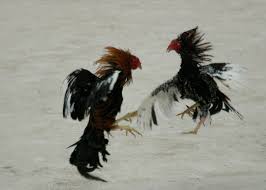
When I was a student, I wrote a research paper on genderlect, and at that time the subject did not really captivate me enough to go deeper, but now that I have gained more experience in the workplace, it is fascinating for me to see and analyze how men and women communicate differently (not only in the workplace --- should I say rather... particularly not in the workplace?).
Anyway, sitting in the interviews (Heaven, please, let me never-ever be recruiting again!) I was noting how men and women would phrase and wrap their stories differently, the words they would use, the sentence structures... For instance, women tend to use "we" much more often, and as a recruiter I had to probe deeper and find out eventually that it was meant to be "I" but the lady was not very comfortable as she would think it is bragging. Men, on the other hand, would use "I", while, in fact, they worked as part of a team and the success was shared.
Picking up on those cues makes your recruiting life more diversified and exciting (as it can be, unless the candidates faint/attack/try to bribe you), and at the end of the day it boils down to genderlect! So what is it? Mrs Tannen coined the term to express a simple idea - the way women and men talk are just ----
different.
Some dimensions she examined are:
Emotion and rapport: who would use "ah", "oh", "so" or "such" more often? Correct - in seeking rapport, women would use intensifiers, diminutives and other ways of building rapport. Men see emotions as a sign of weakness. Big boys don't cry. Authority and line of command are welcome and eagerly used.
Private and public: give a man a mike and an audience and you will hear a torrent of opinions, jokes, facts and whatever there is in his head, just because men love attention; it helps them with self-assertion (cock fights work in a similar way). Women prefer private conversations, where they can gain more rapport and connection.

Listening and interrupting: same story. Interrupting is like snatching away a favorite toy from your friend in the sand-box: a sure way to attract everyone's attention. At the same time, asking questions is a way of demonstrating a weakness - why do you think men rarely ask for directions
Jokes and stories: who's the victim? who's the hero? how's it in real life? Men love stories about themselves (see Spider Man
Do these description fit your experiences and observations?
Below is something to demonstrate the theory - my professor used this in class, and I promise to find something equally illustrative of men :)
****************
Words that Women Use:
FINE:
This is the word women use to end an argument when they feel they are right and you need to shut up. Never use "fine" to describe how a woman looks - this will cause you to have one of those arguments.
FIVE MINUTES:
This is half an hour. It is equivalent to the five minutes that your football game is going to last before you take out the trash, so it's an even trade
NOTHING:
This means "something," and you should be on your toes. "Nothing" is usually used to describe the feeling a woman has of wanting to turn you inside out, upside down, and backwards. "Nothing" usually signifies an
argument that will last "Five Minutes" and end with "Fine"
GO AHEAD: ( With Raised Eyebrows! ) This is a dare. One that will result in a woman getting upset over "Nothing" and will end with the word "Fine"
GO AHEAD: (Normal Eyebrows) This means "I give up" or "do what you want because I don't care". You will get a "Raised Eyebrow Go Ahead" in just a few minutes, followed by "Nothing" and "Fine" and she will talk to you in about "Five Minutes" when she cools off.
LOUD SIGH: This is not actually a word, but is a non-verbal statement often misunderstood by men. A "Loud Sigh" means she thinks you are an idiot at that moment, and wonders why she is wasting her time standing here and arguing with you over "Nothing".
SOFT SIGH: Again, not a word, but a non-verbal statement. "Soft Sighs" mean that she is content. Your best bet is to not move or breathe, and she will stay content.
THAT'S OKAY: This is one of the most dangerous statements that a woman can make to a man. "That's Okay" means that she wants to think long and hard before paying you back for whatever it is that you have done. "That's Okay" is often used with the word "Fine" and in conjunction with a "Raised Eyebrow."
GO AHEAD! : At some point in the near future, you are going to be in some mighty big trouble.
PLEASE DO: This is not a statement, it is an offer. A woman is giving you the chance to come up with whatever excuse or reason you have for doing whatever it is that you have done. You have a fair chance with the truth, so be careful and you shouldn't get a "That's Okay"
THANKS: A woman is thanking you. Do not faint. Just say you're welcome.
THANKS A LOT: This is much different from "Thanks." A woman will say, "Thanks A Lot" when she is really ticked off at you. It signifies that you have offended her in some callous way, and will be followed by the
"Loud Sigh." Be careful not to ask what is wrong after the "Loud Sigh," as she will only tell you "Nothing"
No comments:
Post a Comment